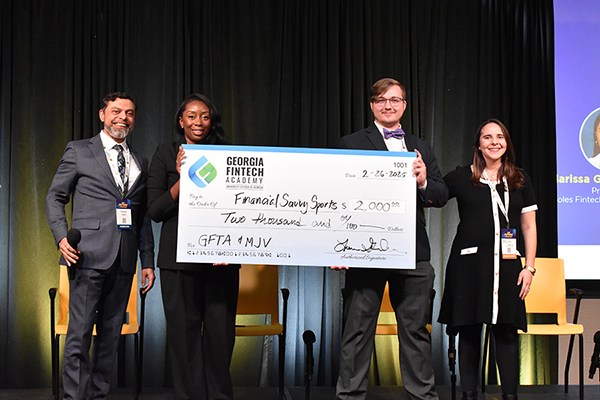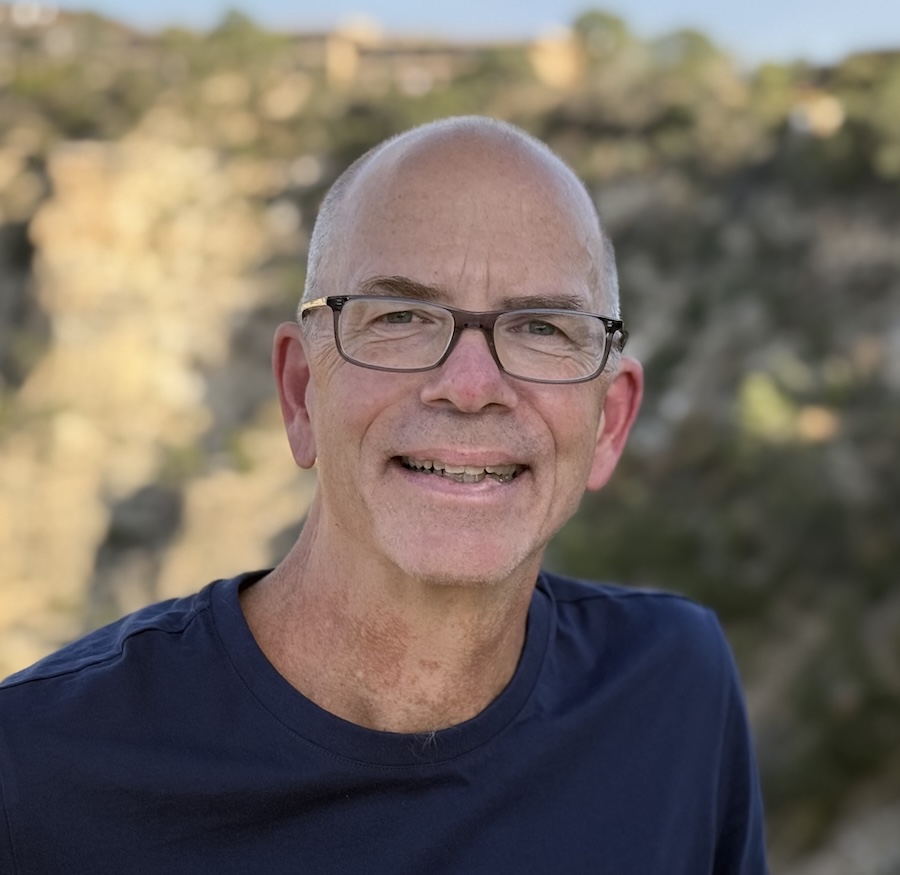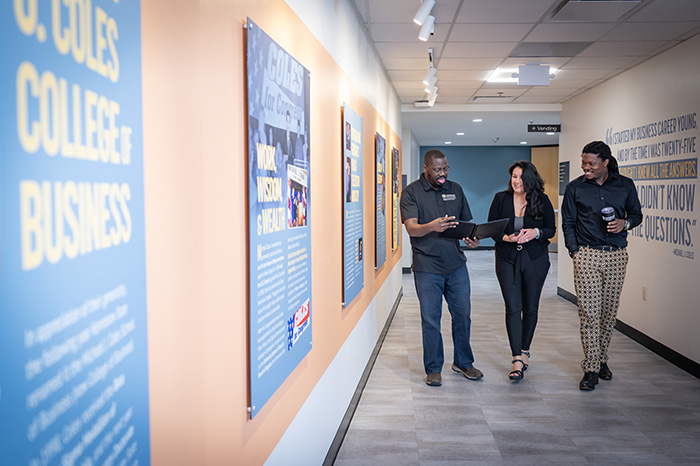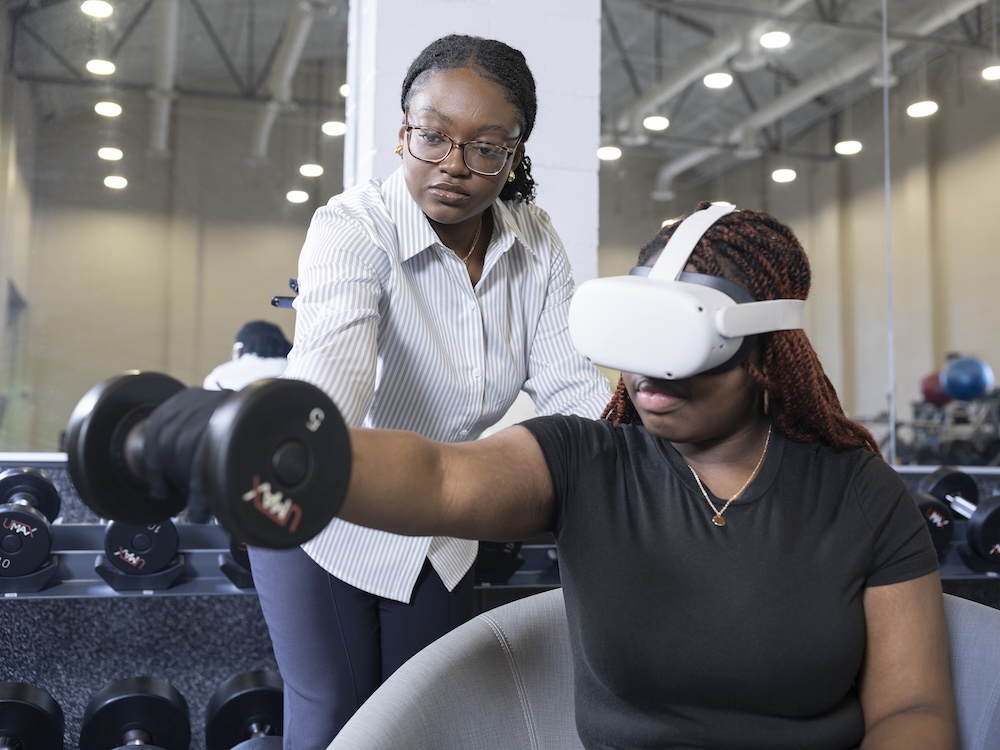
Cybersecurity, Privacy, and Supply Chain Threats Highlight Coles Research Symposium
KENNESAW, Ga. | Nov 30, 2022
With cybersecurity threats increasingly making headlines, Kennesaw State University’s Coles College of Business invited researchers from around the country to campus to examine these and other national security threats and to explore strategies for reducing them.
Kennesaw State’s Michael J. Coles College of Business, Bagwell Center for the Study of Markets and Economic Opportunity, and Education Economics Center recently hosted the fourth Coles Research Symposium on Homeland Security. The event highlights cutting-edge research surrounding efforts to prepare for and respond to natural disasters, terrorism, cyberattacks, and other threats.

Researchers from Kennesaw State, Georgia Institute of Technology, Case Western Reserve University, Mississippi State University, and University of Madison-Wisconsin attended and shared their findings on a variety of topics including the evolution of security practices since 9/11, the military’s increased cyber defense capacity, how game theory can help explain human conflicts, and more.
Laura Albert, Professor and the David Gustafson Department Chair of Industrial and Systems Engineering at the University of Wisconsin-Madison, was one of the event’s keynote speakers. She discussed how her research on baggage scanning technologies in the early 2000s was instrumental in the TSA adopting its current risk-based passenger screening policies.

Albert said she appreciated the opportunity to attend the symposium after several years of academic conferences being canceled or going virtual.
“I hadn't attended a small, interdisciplinary conference like this in years due to the COVID-19 pandemic, and I had sorely missed the opportunities to network and grow as a researcher at symposiums such as this,” she said. “The conversations energized me and caused me to think more deeply about important homeland security problems to address. I left the conference excited about my future research endeavors and starting new projects.”
Among the other researchers from outside Kennesaw State were:
- Kyriakos G. Vamvoudakis, assistant professor of aerospace engineering at Georgia Tech,
who presented on vulnerabilities in software controlling surveillance, safety, and
health monitoring systems,
- Roman Sheremeta, associate professor of economics from Case Western University, who
examined the reasons why people behave so competitively in games and what that says
about human conflict,
- Nadiya Kostyuk, assistant professor of public policy at Georgia Tech, whose research looked at how developed countries are helping the less-developed allies enhance their militaries’ cyber defense capabilities, and
- Merrill Warkentin, James J. Rouse Endowed Professor of Information Systems (IS) and a William L. Giles Distinguished Professor at Mississippi State University, whose presentation discussed how the cybercriminals targeting an organization can often be its own employees or contractors.
The symposium also hosted poster presentations from current students working alongside faculty mentors on their own projects. Each student focused on a cybersecurity challenge and presented their research on how these issues could be resolved or better handled.
Connor Berger, computer engineering major, presented on a low-cost, low-power, SCADA Testbed Solution for Secure Remote Monitoring. SCADA systems control the distributed processes in factories, manufacturing plants, and warehouses. Berger’s testbed would allow him to explore the vulnerability of SCADA system security by approaching the system from an attacker’s point of view.

“A great deal of security and malware prevention software has gone into protecting software applications over the last couple decades as technology continues to advance,” Berger said. “I cannot say the same for SCADA systems. The threat posed on to the critical infrastructure that SCADA systems control and monitor is far greater in terms of impact and scale of attack than common computer software application vulnerabilities.”
Berger hopes that his research will help in the development of countermeasures to enhance the overall security of these systems, promote awareness, and inspire others to do the same.
Other student posters discussed novel approaches to defending against software supply chain attacks and how web-based monitoring technology can help protect the privacy of patients using mobile health devices.
Jomon Paul, Coles College’s director of research and assessment and the symposium’s organizer, said the quality of research on display at the Symposium on Homeland Security reflects the importance universities across the country continue to place on working to make the country and the world safer.
“As the kinds of security threats society faces become more advanced, our responses to those threats must become more advanced as well,” Paul said. “The work being done by my colleagues and by our students will no doubt enhance the quality of life for many people, and improve safety for everyone.”
-Daijah Sims
Related Posts

Innovative Minds Shine at KSU's Digital Payments Pitch Competition

Kennesaw State professor honored by American Accounting Association as 2025 Presidential Scholar

CEO Magazine Ranks Kennesaw State Executive MBA Top Program in Georgia, No. 10 in the World

Kennesaw State business student finds research niche in virtual reality














